
The Veterinary Hospital Managers Association recently introduced a new certification, the Certified Veterinary Office Manager
Christine Shupe, CAE, executive director of the Veterinary Hospital Managers Association, graduated from the State University of New York College at Oswego with a Bachelor of Arts degree, major in Political Science. Christine started her career as an administrative assistant for the lobbying firm of Shea and Gould in Albany, NY. She continued her career at the New York State Legislature as the Legislative Aid to Assemblywoman Frances T. Sullivan. She joined the association management firm of Capitol Hill Management Services (CHMS) where she served as an administrative assistant to the New York State Association of Renewal and Housing Officials (NYSARHO), Executive Director to the New York State Society of Opticians (NYSSO) and Executive Director to the Veterinary Hospital Managers Association (VHMA). In 2003, she earned the Certified Association Executive (CAE) designation awarded by the American Society of Association Executives.
In 2005 she started her own association management company, CQS Management Service, LLC, where she continues to serve as the VHMA Executive Director. In 2017 she earned the Credentialing Specialist Certificate from the Institute for Credentialing Excellence. In 2018 VHMA was presented with the Pioneer Professional Award from VetPartners and received the 2019 Executive of the Year Award from Veterinary Medical Association Executives (VMAE). She currently serves as the Treasurer to the Meadow Ridge Homeowners Association and as a Director on the VMAE Board. She is a trained community volunteer for the North Carolina Guardian Ad Litem program where she serves abused and neglected children by advocating for their best interests in court.

The Veterinary Hospital Managers Association recently introduced a new certification, the Certified Veterinary Office Manager

The Veterinary Hospital Managers Association shares the top perks employees receive at veterinary practices.
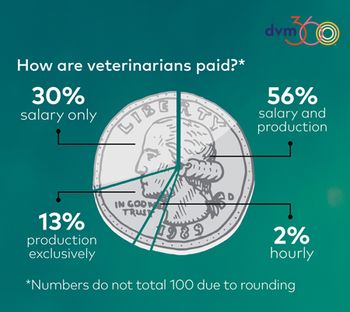
Compensation can take many forms. To gain a clearer understanding of compensation in the veterinary industry, Veterinary Hospital Managers Association (VHMA) asked its members to detail practice procedures for compensating veterinarians.

Data collection and analysis can be effective for tracking and maintaining veterinary clients. But is it worth it?
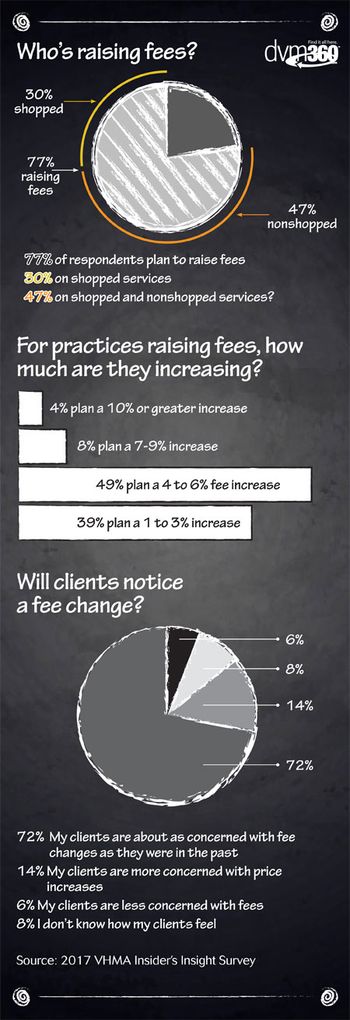
And what do veterinary clients think about it? A VHMA survey takes a closer look.

Despite evidence of widespread psychological distress in the veterinary field, a VHMA study shows very few hospitals offer Employee Assistance Programs.

The Veterinary Hospital Managers Association shares Insider's Insights data on who's talking to pet owners about financing optionsand when they're broaching the topic.

The VHMA predicts three ways the top trends in veterinary medicine will influence the the evolving role of practice manager.

Ask 10 veterinary managers to describe their jobs and responsibilities. You may end up with 50 different descriptions, but its a sure bet that each response will include some reference to being overloaded.
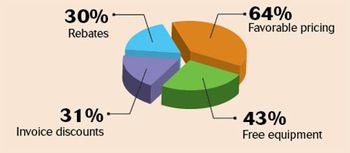
Are you in an exclusive relationship with your lab? Before you commit, make sure you establish clear boundaries.

Veterinary practice managers are fundamental, and so is their compensation.

Pew Research data puts the percentage of pet owners between the ages of 18 and 29 at 58 percent. That means more than half of today's pet owners belong to the generation of people who don't check voicemail, prefer texting to talking and are eager to share opinions and reviews online.

Answer these five questions to discover your MQ (millennial quotient).

Is bigger better, smaller more streamlined, medium most manageable? VHMA set out to determine if the size of a practice can influence the quality of services, contentment of staff and a practices economic viability.

But are they successful? Or wait, do you even have one? Does it all seem like too much work? Time to have that awkward discussion at your practice.

Veterinary wellness plans can be a terrific strategy for improving patient health. Consider these important issues with your team before choosing a plan.
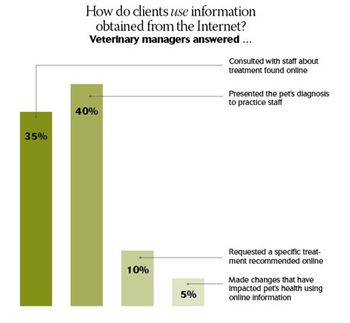
DYK? Many clients who use Dr. Google arent sorry.

Use this interactive flow chart to help your veterinary clients keep Dr. Google in check.

True or false: When veterinarians and team members use personalized approaches to managing patient health, this enhances care and patients flourish.
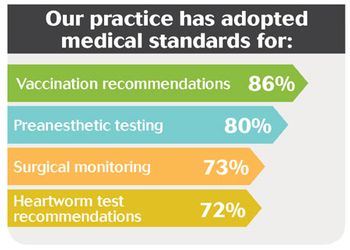
The business of good medicine counts on guidelines for a vast array of conditions, issues and procedures. Standards make sense, but are practices readily adopting them?

Remember Charlie Brown's friend Linus? He was famous for saying, "Happiness is a warm blanket." But for many pet parents, the source of true happiness is a short wait at their pet's veterinary visit.

Do you rock the clock or is it time to consider strategies to reduce your veterinary clients' wait time? Use this checklist to test your team.
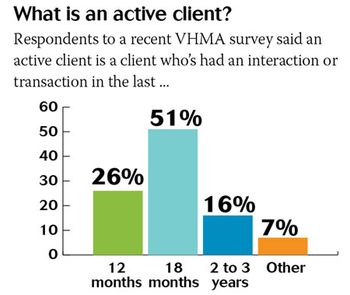
Your client left you. She took the cat, took the dog and shes moving on. But you dont know it yet because you: a. Dont track client retention data b. Fudge on what you call active clients c. Cant even begin to define an active client

She left you. You're sad, a little hurt and you'll miss her ... sweet schnauzer's snuggles? Use this simple guide to see if you can repair your relationship before your veterinary client moves on to a new relationship with that tall, dark and dreamy veterinary practice down the street.

You recommend tests, but do clients heed your advice?

When you make strong recommendations to pet owners, you can improve client complianceand help protect pets' health.

What team members dont know about finances can hurt your practice.


The Veterinary Hospital Managers Association survey examines competition and fees by practice location.

Whether your veterinary practice is rural, suburban or urban, your fee structure determines how well your practice competes with surrounding practices. Use these steps to identify the right fees for your practice.

Published: November 1st 2013 | Updated:

Published: December 1st 2013 | Updated:

Published: January 1st 2014 | Updated:

Published: January 1st 2014 | Updated:

Published: January 1st 2014 | Updated:

Published: February 1st 2014 | Updated: